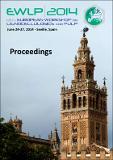Por favor, use este identificador para citar o enlazar a este item:
http://hdl.handle.net/10261/98689COMPARTIR / EXPORTAR:
 SHARE
BASE SHARE
BASE
|
|
| Visualizar otros formatos: MARC | Dublin Core | RDF | ORE | MODS | METS | DIDL | DATACITE | |

| Campo DC | Valor | Lengua/Idioma |
|---|---|---|
| dc.contributor.author | Borges Gomes, Fernando Jose | - |
| dc.contributor.author | Colodette, Jorge Luiz | - |
| dc.contributor.author | Milanez, Augusto | - |
| dc.contributor.author | Andreotti, Juliana | - |
| dc.contributor.author | Burnet, Auphélia | - |
| dc.contributor.author | Petit-Conil, Michel | - |
| dc.contributor.author | Río Andrade, José Carlos del | - |
| dc.contributor.author | Gutiérrez Suárez, Ana | - |
| dc.contributor.author | Pérez-Boada, Marta | - |
| dc.contributor.author | Martínez, Ángel T. | - |
| dc.contributor.author | Santos, Felipe Almedia | - |
| dc.date.accessioned | 2014-06-20T09:52:42Z | - |
| dc.date.available | 2014-06-20T09:52:42Z | - |
| dc.date.issued | 2014-06-24 | - |
| dc.identifier.citation | Proceedings of the 13th European Workshop on Lignocellulosics and Pulp, pp. 251-254 (2014) | es_ES |
| dc.identifier.isbn | 978-84-616-9842-4 | - |
| dc.identifier.uri | http://hdl.handle.net/10261/98689 | - |
| dc.description.abstract | Eucalypt wood has become one of the main raw materials for pulp production, mainly in South America. Through this study, 19 eucalypt clones were analyzed regarding their forestry production, and chemical characteristics. After this analysis, among the 19 clones, 5 were chosen to be analyzed concerning their potential for pulp production, including one commercial clone which was used as a reference clone of high quality and performance for pulp production. Two pulping processes were used to convert eucalypt clones into pulps, namely, Soda-AQ and kraft processes. The main findings of this paper were: (1) high technological quality of Eucalyptus clones evaluated, and that they can be used for pulp production since most of the clones had performance similar to clone IP; and (2) the Soda-AQ process seems to be a potentially replace the kraft for a high degree of wood delignification. | es_ES |
| dc.description.sponsorship | Funding provided by the European Community's Seventh Framework Programme FP7/2007-2013 under grant agreement no KBBE-2009-3-244362 LignoDeco, from the Minas Gerais State Research Foundation (FAPEMIG) and from the Brazilian National Council for Science and Technology Development (CNPq) is greatly appreciated. | es_ES |
| dc.language.iso | eng | es_ES |
| dc.publisher | CSIC - Instituto de Recursos Naturales y Agrobiología de Sevilla (IRNAS) | es_ES |
| dc.rights | openAccess | es_ES |
| dc.subject | Alkaline deconstruction | es_ES |
| dc.subject | Eucalyptus wood | es_ES |
| dc.subject | Kraft | es_ES |
| dc.subject | Soda-Anthraquinone | es_ES |
| dc.title | Evaluation of alkaline deconstruction processes for Brazilian new generation of eucalypt clones | es_ES |
| dc.type | capítulo de libro | es_ES |
| dc.description.peerreviewed | Peer reviewed | es_ES |
| dc.relation.csic | Sí | es_ES |
| dc.type.coar | http://purl.org/coar/resource_type/c_3248 | es_ES |
| item.openairetype | capítulo de libro | - |
| item.grantfulltext | open | - |
| item.cerifentitytype | Publications | - |
| item.openairecristype | http://purl.org/coar/resource_type/c_18cf | - |
| item.fulltext | With Fulltext | - |
| item.languageiso639-1 | en | - |
| Aparece en las colecciones: | (CIB) Libros y partes de libros (IRNAS) Libros y partes de libros | |
Ficheros en este ítem:
| Fichero | Descripción | Tamaño | Formato | |
|---|---|---|---|---|
| pp-251-254-Proceedings-13thEWLP-EVALUATION OF ALKALINE DECONSTRUCTION PROCESSES.pdf | 841,68 kB | Adobe PDF |  Visualizar/Abrir |
CORE Recommender
Page view(s)
299
checked on 23-abr-2024
Download(s)
397
checked on 23-abr-2024
Google ScholarTM
Check
Altmetric
NOTA: Los ítems de Digital.CSIC están protegidos por copyright, con todos los derechos reservados, a menos que se indique lo contrario.
